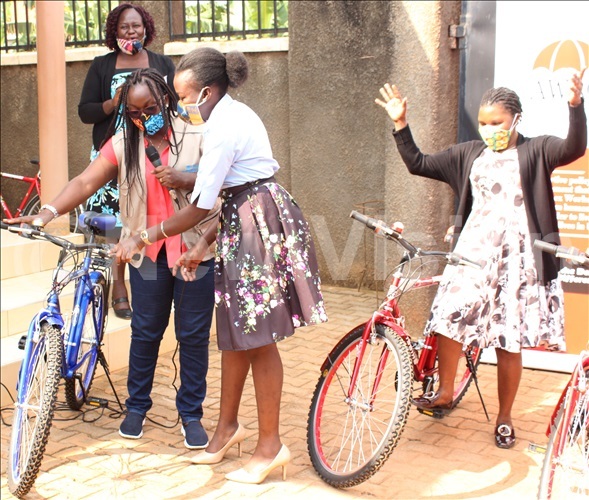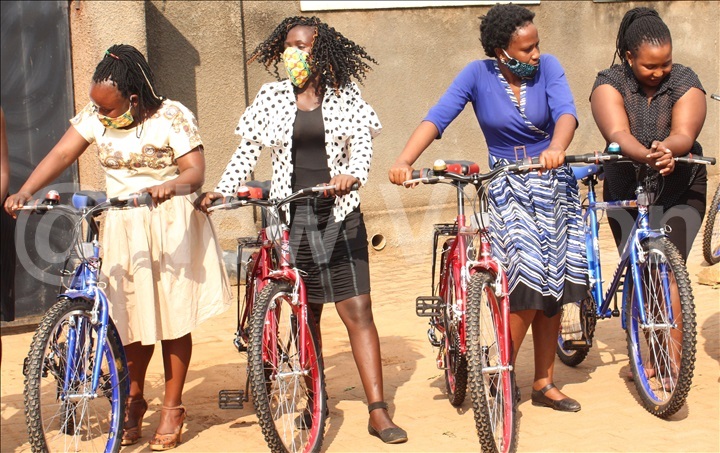COVID-19: People living with HIV forced to disclose status
Patients had to show their medical documents to LC leaders and the Resident District Commissioners (RDCs) so that they secured travel letters for the cyclists who would later pick their drugs.
HEALTH | HIV/AIDS
Some women living with HIV/AIDS were forced to disclose their status to boda boda operators and local council I leaders during the COVID-19 lockdown.
The HIV/AIDS women activists have said, attributing the same to restricted transport during the first months of the lockdown, since HIV/AIDS patients were using boda boda operators to pick their medicines.
Notably, earlier in March, President Yoweri Museveni ordered a 14-day nationwide lockdown in a bid to curb the spread of COVID-19 pandemic, restricting both private and public transport.
This left HIV patients with no option but show their medical form details to the boda boda riders and also directed them where to pick the ARVs.
The patients also had to show the same to their LC leaders and the Resident District Commissioners (RDCs) so that they secured travel letters for the cyclists who would later pick their drugs.
Handing over bicycles from the UN Women, Angel Ntege, from the International Community of Women Living with HIV Eastern Africa (ICWEA) said the difficulty in transport left many women and other people living with HIV/AIDs with no option, but to reveal their status.
"Women reached out to us asking how they would get their treatment without disclosing to cyclists. This was one of the biggest challenge during the lockdown because they had to continue with their medication," Ntege said.

She revealed that she was touched as a person who knows what disclosure is, and its repercussions, especially when someone is not ready, noting that women take up a very big percentage in adherence, looking for medicine and information while males' involvement is limited.
The executive director of the Alliance of Women Advocating for Change (AWAC), Macklean Kyomya said many of patients in some districts were not able to access Antiretroviral Viral Therapy (ART) services from specific facilities because they were not registered in those health facilities.
She revealed that since the country was under lockdown HIV patients had to first get referral letters where they were registered, in order to access the services.
"Some who missed referral letters, decided to walk away without treatment. We registered some cases were people died like one in Hoima and Lamwo districts," Kyomya said.
She explained that the one who died in Lamwo had no access to ARVs, adding that other patients chose to give themselves drug holidays just because they could not meet their appointments at the clinic facilities.

Community delivery models
According to Kyomya, it is very important to have community service delivery models to ease access to drugs and services to patients especially during the times of pandemic.
She said it is important to look for other opportunities and how they can be utilized through community structures to take services closer to people.
Likely effects
The program specialist health and HIV UN Women, Elizabeth Mushabe said COVID-19 is likely to reverse the good things that had been achieved.
He cited the delayed delivery of medication to different patients, saying this is likely to give room for the virus to grow.
"Some people who had already suppressed the HIV virus in their body, are likely to see HIV viral load increase because they never took their medicine as required," Mushabe said.
Handing over the bicycles to ICWEA, together with Uganda Network of Young People Living with HIV&AIDS (UNYPA) and Alliance of Women to Advocate for Change (AWAC) in Senge Wakiso district , Mushabe said the bicycles are to be distributed to 18 districts in Karamoja, Northern region, West Nile, and parts of the Central region, where ICWEA operates and will be will be used to deliver ARVs to HIV patients.
Ruth Awori, from the Uganda Network of young people living with HIV, expressed concern that many of the young people living with HIV/AIDs remain exposed to mental health challenges.